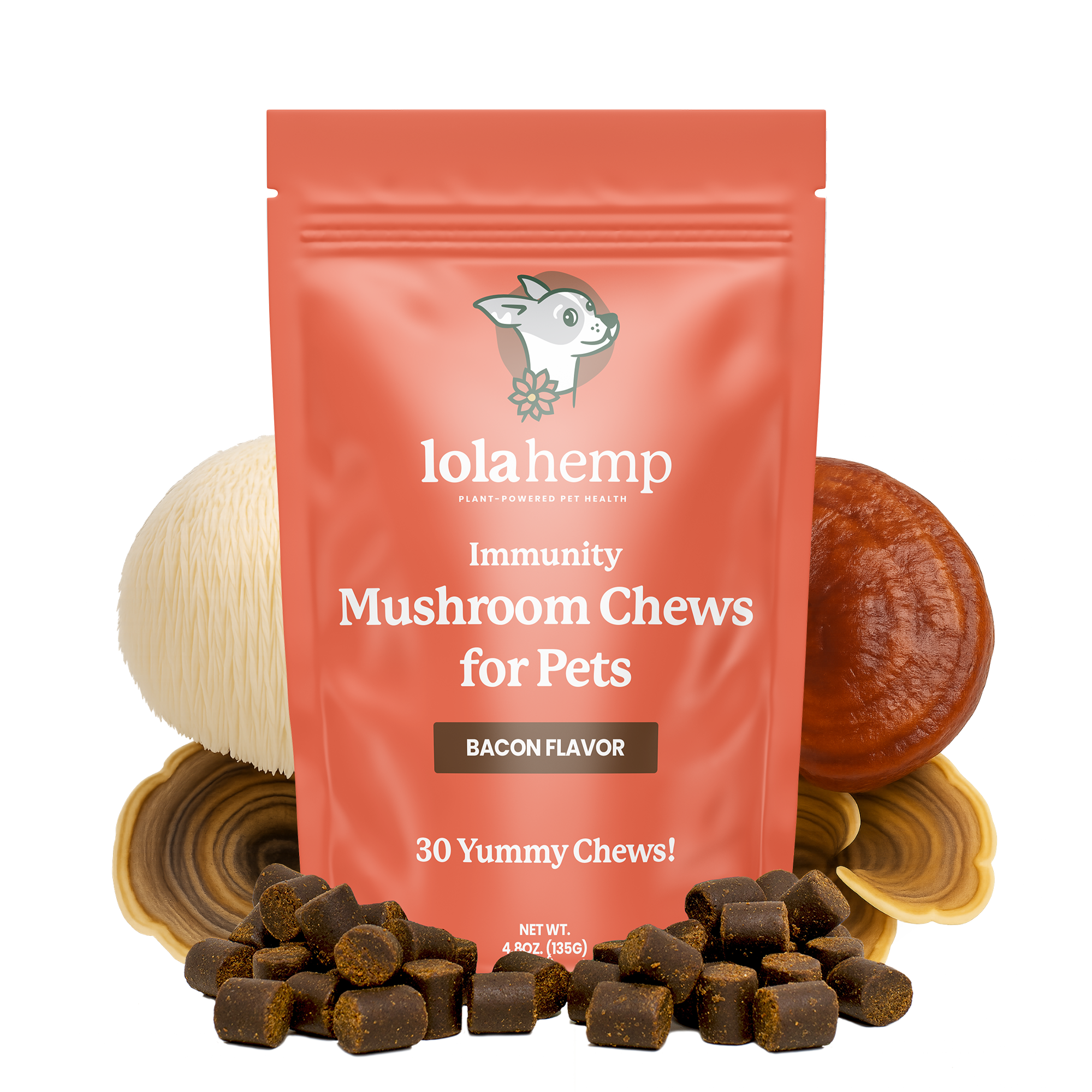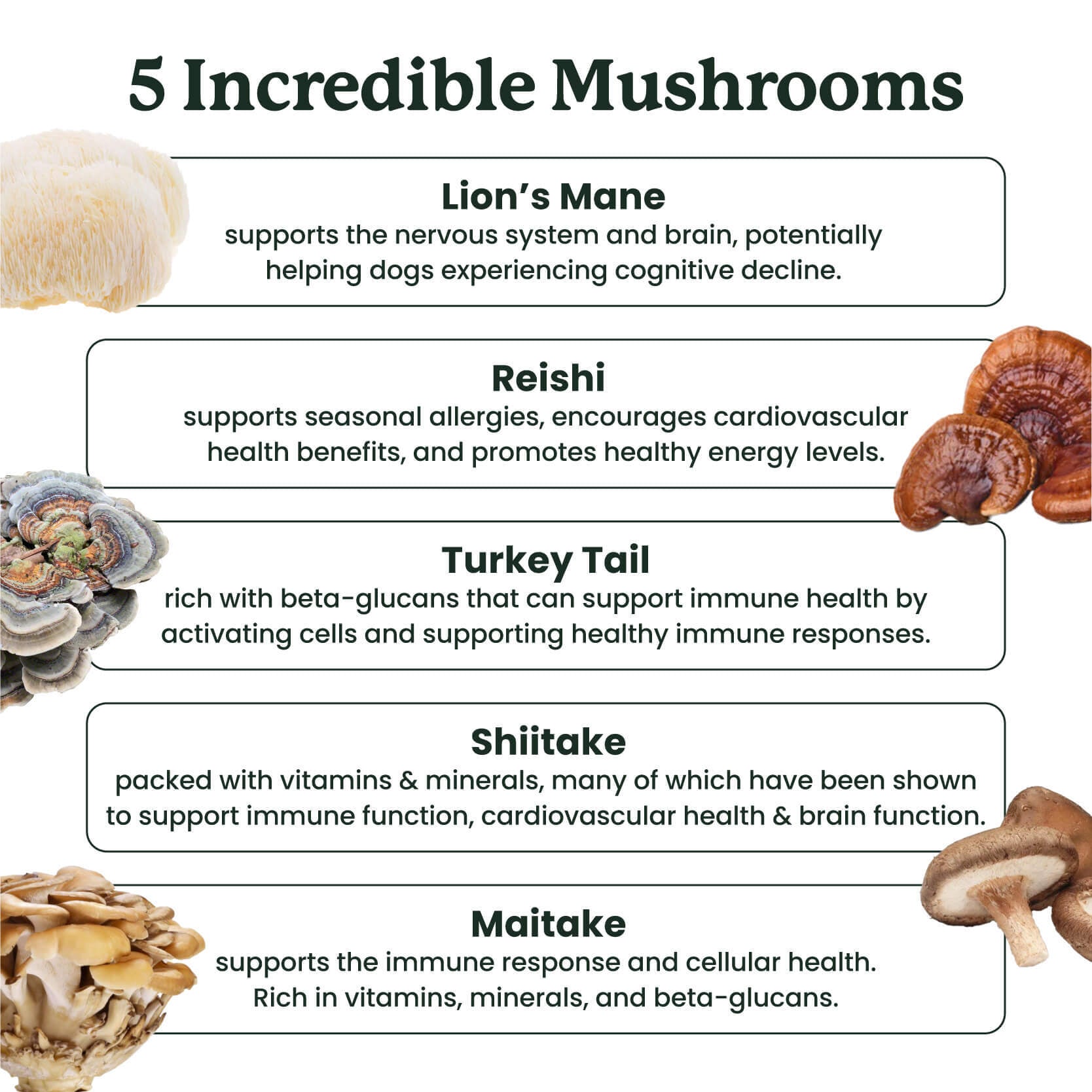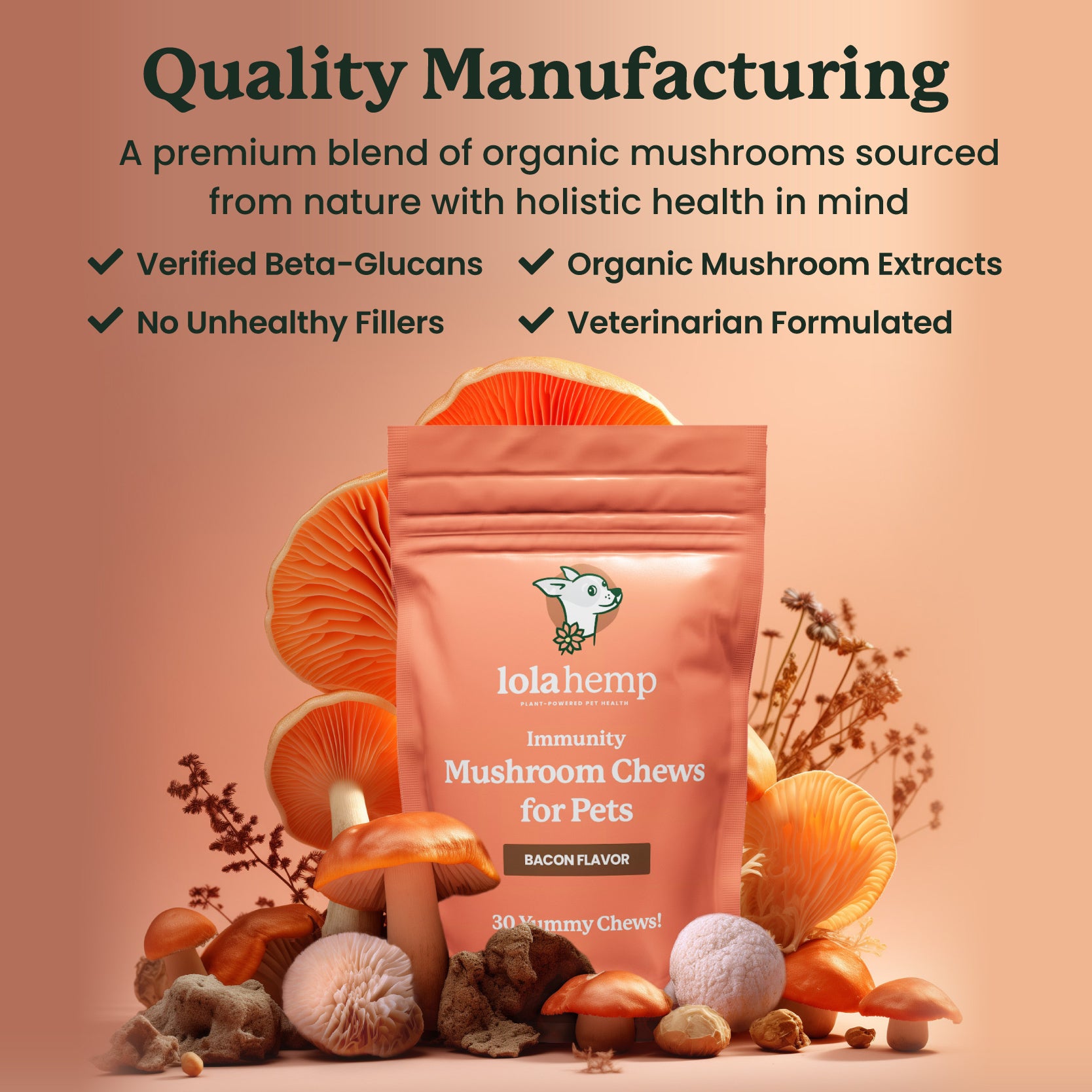Maitake mushroom, a fungus scientifically known as Grifola frondosa, has long been revered not only for its culinary appeal but also for its potential health benefits. Using Maitake mushroom supplements for dogs could support their health in a handful of ways.

Commonly referred to as "hen of the woods" or "dancing mushroom" due to their layered appearance that resembles the feathers of a fluffed hen, maitake mushrooms are a flavorful and nutritious addition to various dishes. Originating from Japan, these mushrooms have gained popularity globally for their distinctive taste and medicinal properties.
Benefits of Maitake Mushrooms for Dogs
| 4 Key Benefits |
|---|
1. Immune System SupportMaitake mushrooms are rich in bioactive compounds that may help stimulate and modulate the immune system in dogs. A strong immune system is vital for protecting dogs from infections and illnesses, making maitake mushrooms a potential beneficial supplement for immune support. |
2. Anti-Inflammatory PropertiesMaitake mushrooms contain compounds known for their anti-inflammatory properties, which may help dogs with inflammatory conditions such as arthritis, inflammatory bowel disease, or joint discomfort. These mushrooms could potentially offer relief and support for managing inflammation. |
3. Blood Sugar RegulationSome studies in humans have suggested that maitake mushrooms may help regulate blood sugar levels. For dogs with diabetes or those at risk of developing the condition, maitake mushrooms could be explored as a potential dietary supplement to help manage blood sugar levels under veterinary guidance. |
4. Cardiovascular HealthComponents in maitake, such as beta-glucans and antioxidants, may support cardiovascular health by promoting healthy cholesterol levels. For dogs with heart conditions or those at risk, maitake mushrooms could be considered as a supplementary food option to support heart health, under the guidance of a veterinarian. |

Nutritional Content of Maitake Mushrooms
Maitake offers a compelling array of nutrients that contribute to their potential health benefits. Here's a breakdown of the key nutritional components and how they may be beneficial for our canine companions:

1. Beta-Glucans
These medicinal mushrooms are rich in beta-glucans, a type of polysaccharide known for its immune-modulating properties. In dogs, a strengthened immune system can enhance the body's ability to fend off infections and diseases, potentially promoting overall health.
2. Vitamins & Minerals
-
Vitamin D: Maitake contains vitamin D, which plays a crucial role in calcium metabolism and bone health. Adequate vitamin D levels are essential for dogs, particularly those with limited exposure to sunlight.
-
Vitamin B2 (Riboflavin): Riboflavin is vital for energy metabolism and the maintenance of healthy skin and coat in dogs. Maitake contributes to the overall vitamin B profile in the pet diet.
-
Potassium: Essential for maintaining proper heart and muscle function, potassium is a vital electrolyte. Maitake mushroom provides a natural source of potassium, contributing to the overall mineral balance in a dog's body.
- Copper: This essential trace mineral is involved in various physiological processes, including the formation of connective tissues and the absorption of iron. Maitake offers a modest amount of copper to support these functions in dogs.
-
Selenium: Acting as an antioxidant, selenium helps protect cells from oxidative damage. While dogs require selenium in trace amounts, it plays a crucial role in their overall well-being.
3. Dietary Fiber
Maitake mushroom contains dietary fiber, which can aid in digestion and promote gut health in dogs. Adequate fiber intake supports regular bowel movements and may contribute to weight management.
Including maitake as part of a well-balanced and species-appropriate diet can offer a nutritional boost for dogs. However, pet owners should be mindful of individual sensitivities or allergies and always consult with a veterinarian before introducing new foods into their dog's routine.
Mushrooms and Toxicity Concerns
Feeding mushrooms to dogs sparks understandable concerns, given the potential for toxicity associated with certain varieties.
One of the primary concerns with feeding mushrooms to dogs is the challenge of accurately identifying safe varieties. Many toxic mushrooms closely resemble edible ones, making it essential to exercise caution when foraging or introducing new mushrooms to your dog's diet.
For this reason, you should never feed your dog wild mushrooms if you're not an absolute expert in mycology. Instead, opt for veterinarian-formulated mushroom supplements like Lolahemp's Immunity Mushroom Chews.
Conclusion
Maitake mushrooms present an intriguing avenue for exploring potential health benefits for your furry friend. While their culinary appeal has been celebrated for generations, recent interest in their medicinal properties has sparked curiosity about their role in supporting dog health.
If you're interested in trying to help your dog's health with mushrooms, don't start by picking mushrooms from the wild. Use a vet-formulated mushroom supplement for dogs so you know you're giving them safe mushrooms in the right amounts.
Frequently Asked Questions about Maitake Mushrooms for Dogs
What are maitake mushrooms used for in dogs?
Maitake mushrooms may support immune health, inflammation management, blood sugar regulation, and cardiovascular health in dogs.
Are maitake mushrooms safe for dogs?
Maitake mushrooms used in veterinarian-formulated supplements are considered safer than wild mushrooms, which should never be given due to toxicity risks.
What nutrients do maitake mushrooms provide?
Maitake mushrooms include beta-glucans, vitamins such as D and B2, minerals like potassium, copper, and selenium, and dietary fiber.
Can maitake mushrooms help manage inflammation?
Maitake mushrooms contain compounds with anti-inflammatory properties that may support dogs with joint discomfort or inflammatory conditions.
Should I give my dog wild mushrooms?
No. Wild mushrooms can be toxic. Only use veterinarian-formulated mushroom supplements made specifically for dogs.









